Welcome to Moda Fabrics!
Moda and the V&A Museum: A New Collaboration
Moda and the V&A Museum: A New Collaboration
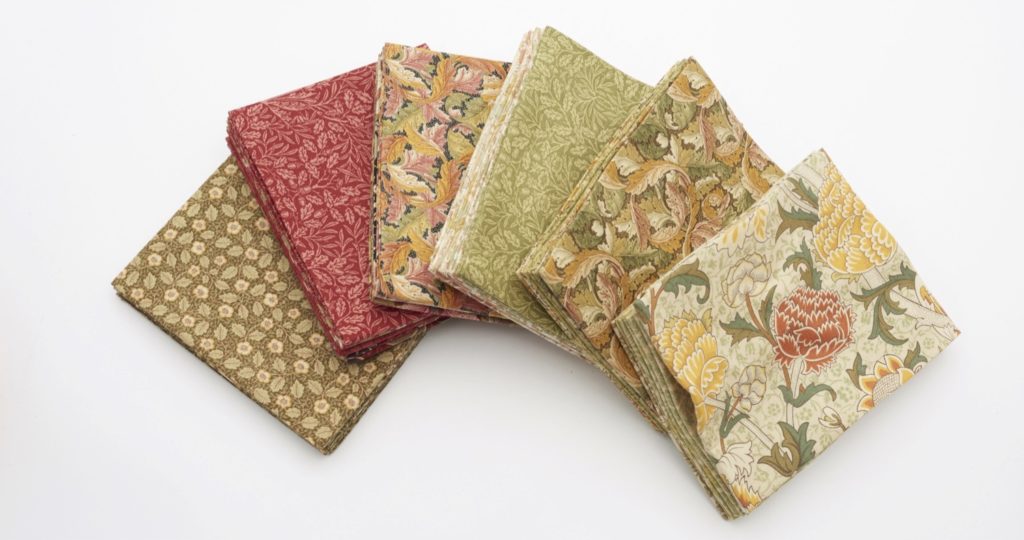 If you’re going to be at Quilt Market, you won’t want to miss this. (And if you’re not, you’ll be glad you kept reading, too.)
If you’re going to be at Quilt Market, you won’t want to miss this. (And if you’re not, you’ll be glad you kept reading, too.)
As Carrie mentioned in yesterday's post, Moda and the Victoria and Albert Museum (AKA the V&A, located in London, England, the world’s leading museum of Art and Design,) are joining forces to create fabric, which you will be able to employ in your quilts, garments, and other projects. “We’re so excited about this collaboration,” says Cheryl Freydberg. “The V&A is an amazing design resource.”
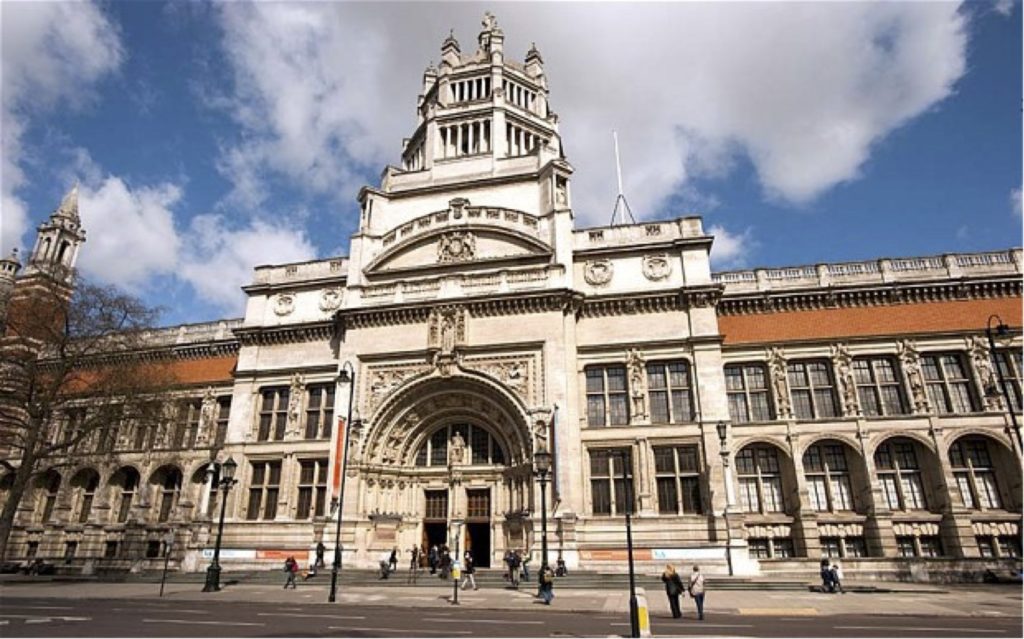 The Victoria and Albert Museum, also known as the V&A
The Victoria and Albert Museum, also known as the V&A
You can hear all about this first line of fabrics, which is based on the designs of architect and designer William Morris, when V&A curator Jenny Lister shares images and insights at the Premier Schoolhouse session at 10 a.m. on May 18. The first 900 attendees will receive a swag bag that includes a table runner project pattern, wristlet, and pencil featuring William Morris designs, and more.
If you can’t make it to St. Louis or if you’d like a bit of background before you go, here’s what Amelia Calver, licensing research and development manager for the V&A, has to say.
Tell us about the V&A’s holdings of William Morris materials and why his work is important.
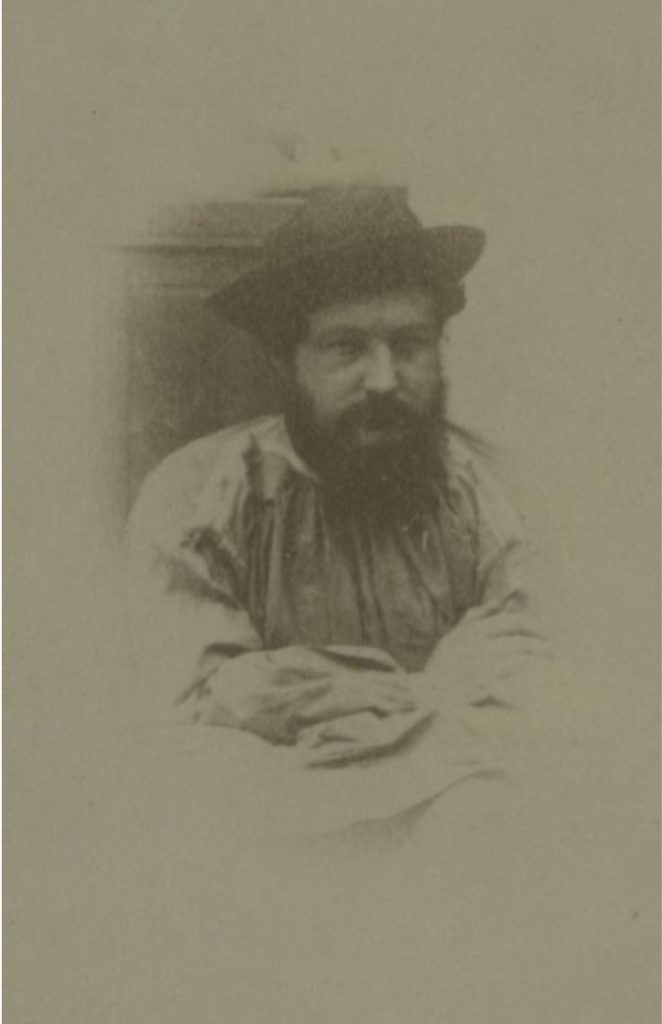 William Morris, about 1875, in his work clothes
William Morris, about 1875, in his work clothes
It was the talent of the young and unknown architect designer, William Morris (1834–96), which the Museum’s first director, Sir Henry Cole (1808–82), quickly recognized following the International Exhibition in 1862 on seeing the particular success of the firm of Morris, Marshall, Faulkner & Co.
Cole commissioned Morris to create the ‘first class’ dining room in the building that was to become the V&A, which can still be seen today. It was the start of a long and very personal involvement by William Morris in the V&A, with Morris becoming its official Art Advisor contributing his style and personality to the collections.
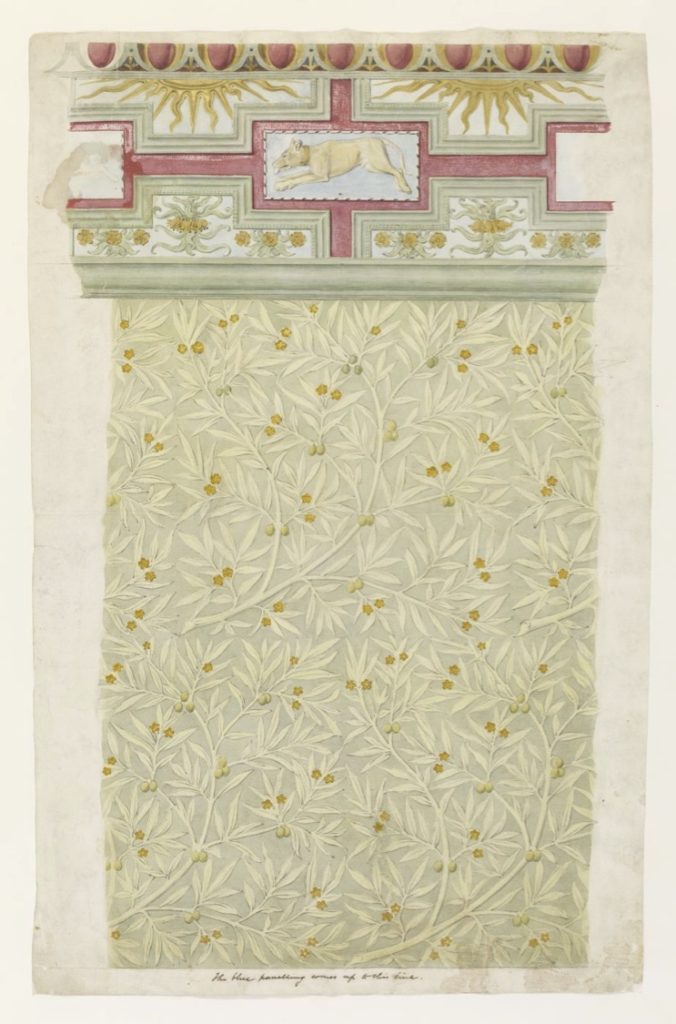 Early dining room design by Morris's firm, 1866, showing influences from Medieval art
Early dining room design by Morris's firm, 1866, showing influences from Medieval art
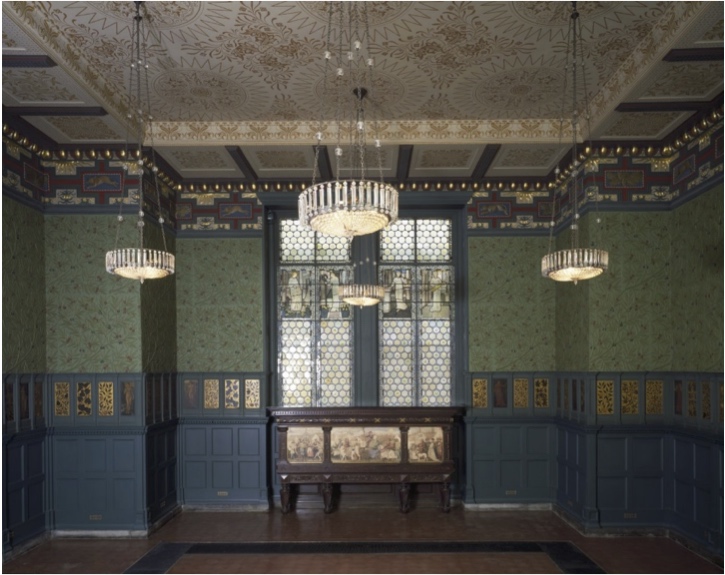 Green Dining Room, designed in 1866 and still in use as a V&A café
Green Dining Room, designed in 1866 and still in use as a V&A café
When William Morris died in 1896, aged 62, his doctor said that Morris had carried out the work of 10 men during his lifetime. The doctor’s diagnosis read: “his disease was simply being William Morris...”
Thanks to Morris’ legacy, the Museum has the world’s most comprehensive collection of his work in virtually every medium, as well as a number of artifacts, including a piece of jewelry containing a lock of his hair. William Morris designs are enduringly popular from one decade to the next whether for homeware, fashion, crafting or stationery.
 Australian couple with fully fitted Morris interior, c. 1897
Australian couple with fully fitted Morris interior, c. 1897
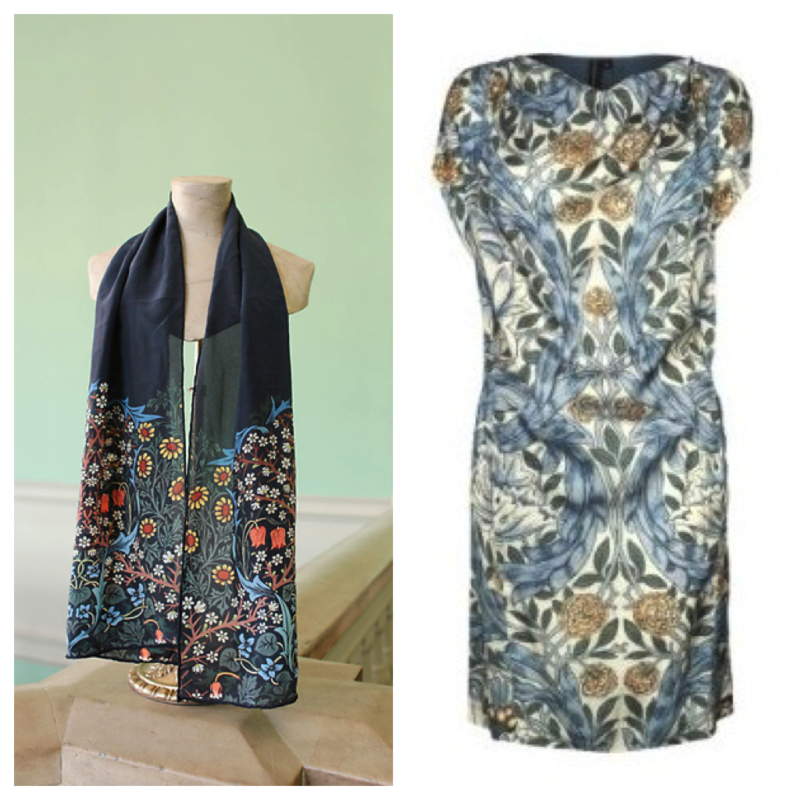 These contemporary products from the V&A incorporate Morris's designs and provide an example of his timeless appeal
These contemporary products from the V&A incorporate Morris's designs and provide an example of his timeless appeal
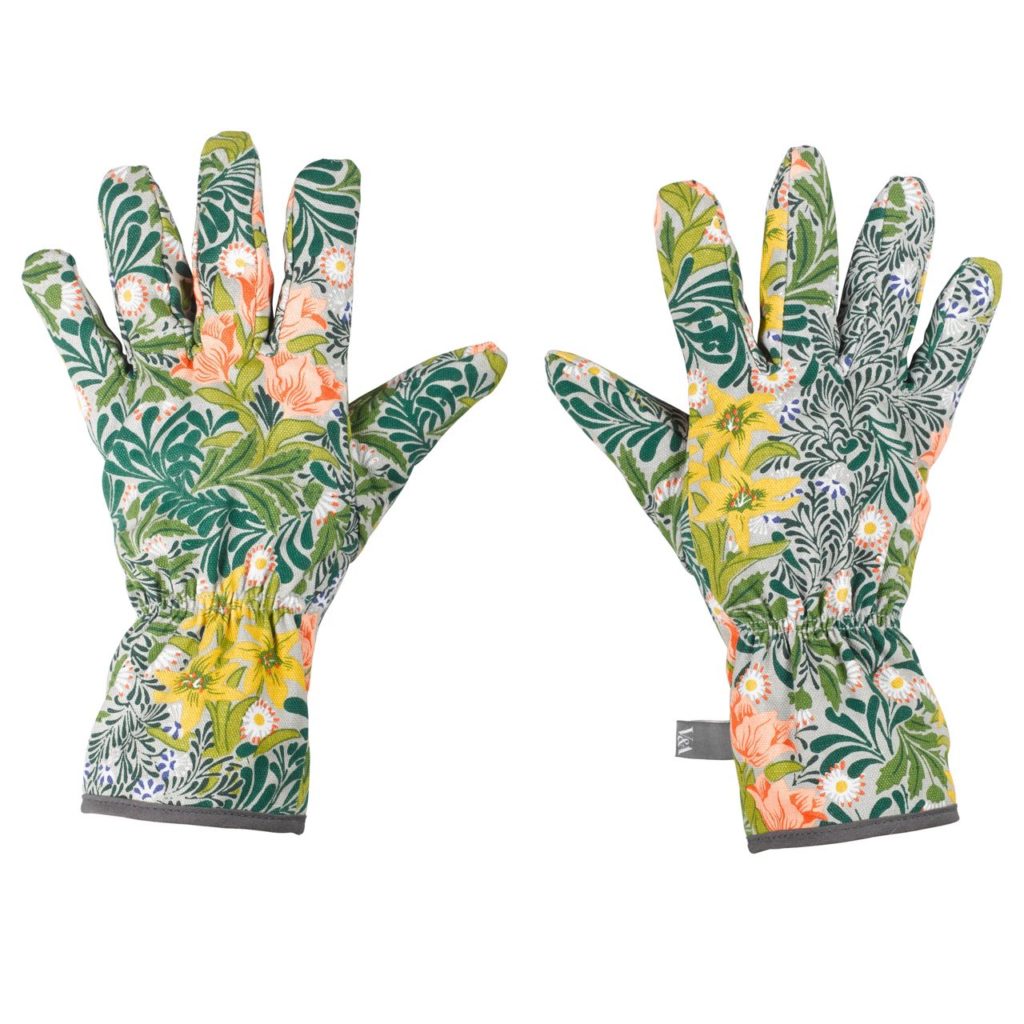
What about the textiles of William Morris make them apropos for sewing and quilting fabric?
Morris created designs for textiles, stained glass, wallpaper, furnishings and ceramics, though it's his textiles that have become his most famous legacy. Morris designs are easy to recognize and many are still in production, which is a testament to the timelessness of his work.
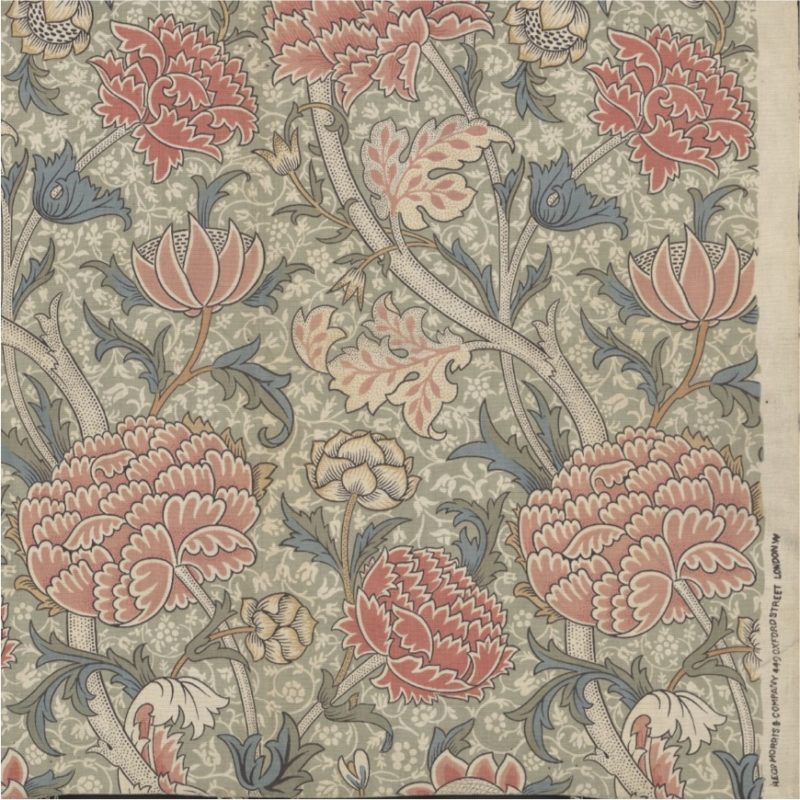 This large-scale design is from William Morris's last group of designs in 1884 for printed cottons and wallpapers.
This large-scale design is from William Morris's last group of designs in 1884 for printed cottons and wallpapers.
 Moda fabrics, reworked in color and scale from the design above, to make them appropriate for quilting and home sewing
Moda fabrics, reworked in color and scale from the design above, to make them appropriate for quilting and home sewing
Concerned with the industrial expansion of late 19th century Britain, and the loss of skills across Britain, Morris led a revival of traditional methods of production, promoting skills otherwise forgotten. This was the birth of the Arts and Crafts Movement.
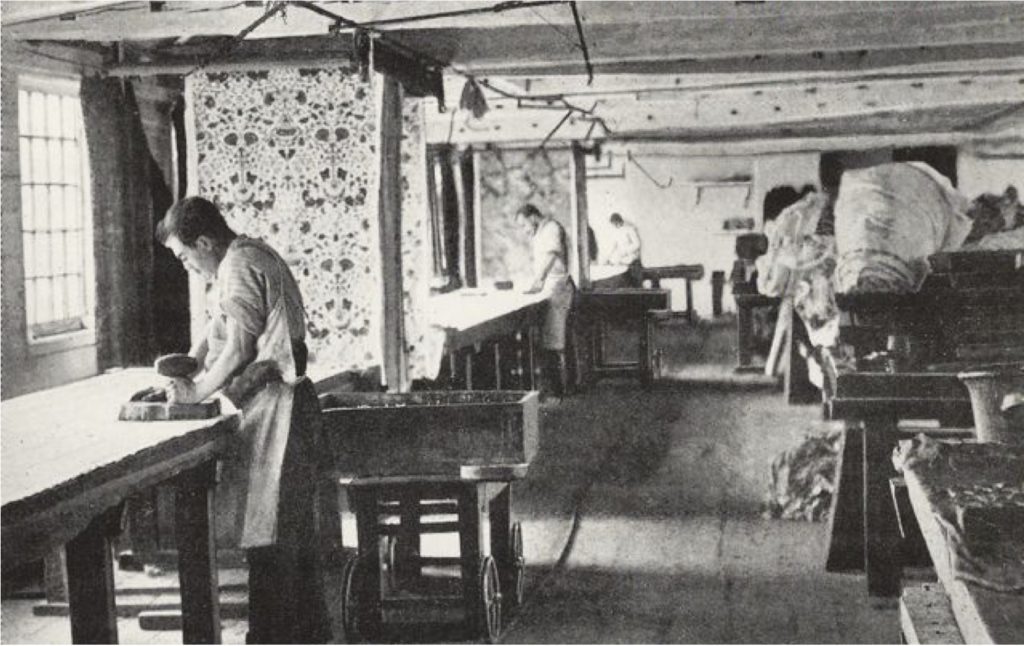 Morris's workshop
Morris's workshop
Morris would have highly regarded quilting and needlework and his firm Morris & Co. produced many kits for embroidery and tapestry hangings.
As the design and integrity of a quilt comes from the fabrics you choose, the William Morris collection by Moda lends itself well to quilting. The scale of the fabric designs adds interest from both near and far, whether it’s Morris’ trademark scrolling acanthus design or a resplendent bloom set within an intricate background of intertwined foliage and stems.
What makes the V&A/Moda partnership such a good idea?
Moda and the V&A share a passion for quality and innovation. With the world’s greatest collection of decorative arts and design and a dynamic exhibition program, the Victoria and Albert Museum is a place for discovery and engagement that fuels creativity and inspires arts and crafts enthusiasts of all ages and experiences. This resonates perfectly with Moda, as the new V&A/Moda collaboration brings authenticity, quality, creativity and design to needlecraft projects.
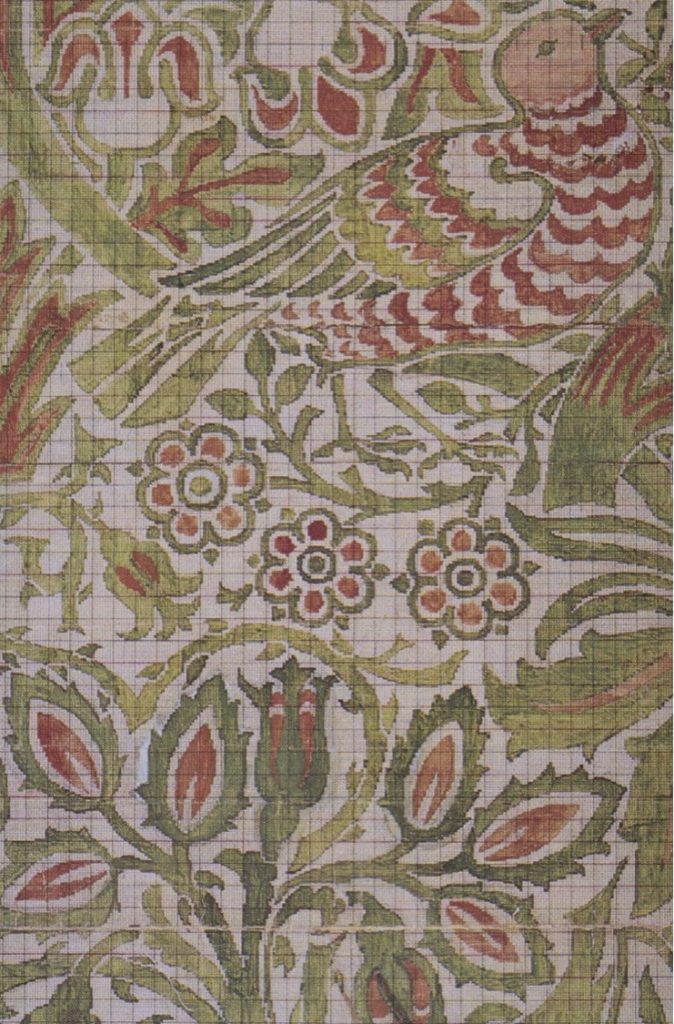 1879 Dove and Rose design, created for silk and wool interiors fabrics
1879 Dove and Rose design, created for silk and wool interiors fabrics
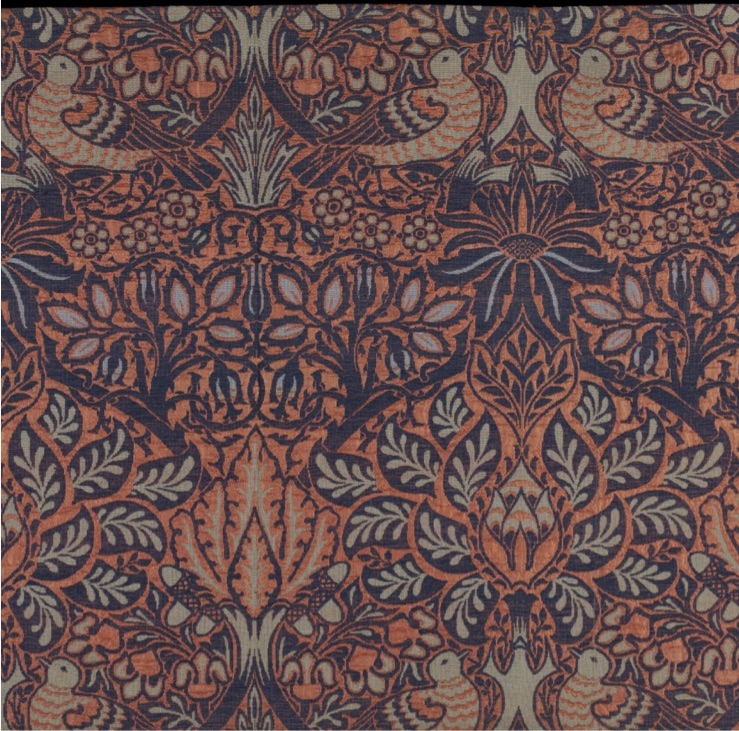 By reworking the color and scale of Dove and Rose, Moda created a fabric conducive to quilting
By reworking the color and scale of Dove and Rose, Moda created a fabric conducive to quilting
If William Morris had some advice for those who stitch, what might it be?
Morris was a passionate advocate of the handmade. He esteemed craftsmen and women, makers of carpets, furniture and china. Morris had great faith in the hands-on approach, learning by doing. So he’d definitely encourage those who stitch today by reminding them of the great pleasure of learning a skill and pushing them to spread the joy and love to newcomers to the craft.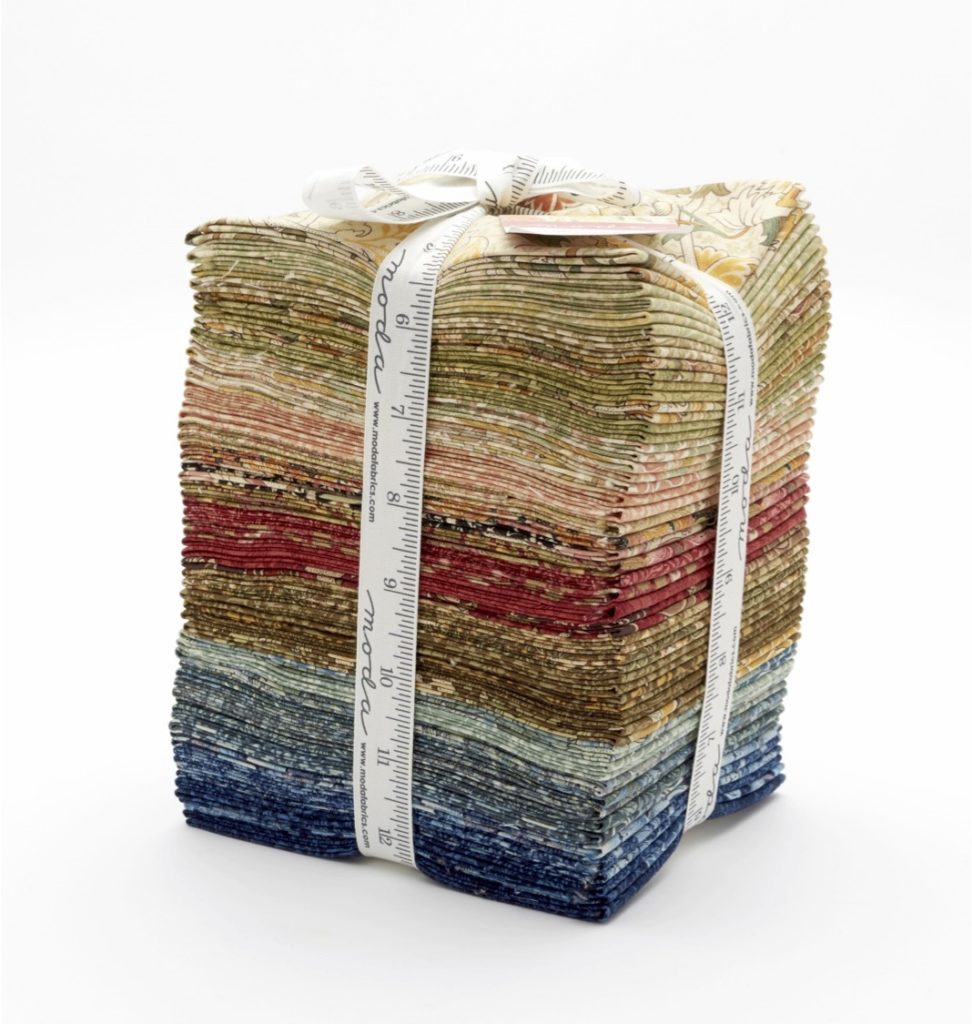
Photos © Victoria and Albert Museum, London

Comments